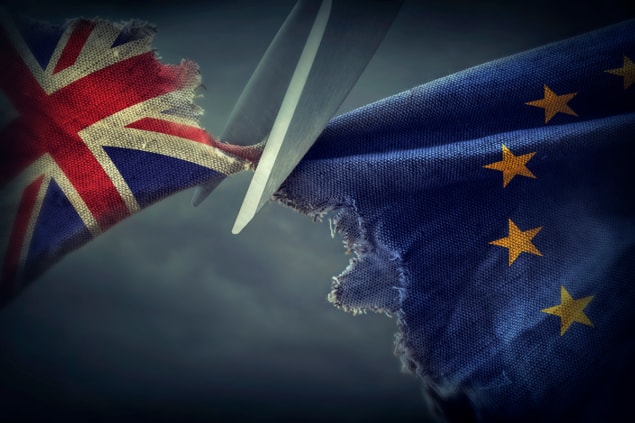
The UK could lose almost half of its European funding under a “no-deal Brexit”, according to a report released today by the House of Lords’ subcommittee on EU home affairs. the report urges the government to explain how it would replace the loss of European funding adding that doing so via national UK programmes represents a “formidable” challenge.
The UK currently gets around 4% of its science funding from the European Union (EU) but wins far more back in return than it puts in. Indeed, the Lords’ report says the UK is the second largest recipient of Horizon 2020 funding — a major EU funding programme that runs between 2013 to 2020 — and has so far received 15.2% of grants distributed through the programme, totalling €5.7bn.
There are less than 50 days to go before the UK is supposed to leave the European Union on 29 March. A “withdrawal agreement” was made by the UK government and the European Union (EU) late last year but was rejected by the UK parliament in January over concerns about the Irish border. Under the withdrawal agreement, the UK is set to maintain its access to the €80bn Horizon 2020 programme, which would coincide with the expected end of the transition period.
Finding alternatives
If the UK crashes out of the EU without a deal, however, the UK government has previously announced that it will underwrite funding from EU programmes until the end of 2020. But according to the Lords’ report, the UK government still needs to agree terms with the EU for UK organisations to continue to participate in Horizon 2020 under “third country” status. That is particularly relevant as access to European Research Council grants as well as Marie Skłodowska-Curie Actions – awards that help researchers to work in different countries — is currently not allowed for third countries and so will not be covered in the government’s underwriting agreement.
These two funds represent a considerable source of funding for researchers in the UK. From 2007 to 2013, for example, UK scientists won €1.7bn of ERC grants – more than any other country and during that time they were also awarded about a quarter (€1.1bn) of all Marie Skłodowska-Curie Actions. According to UK government statistics, these two programmes account for about 44% of UK funding from Horizon 2020.
The lack of clarity over the future availability of EU funds for mobility and research is causing great concern among researchers in the UK
Michael Jay
The report warns that if the UK government cannot secure access to these programmes in a no-deal Brexit then it would need to find alternative UK funding schemes. “It would be a formidable challenge to try to replicate at a national level the substantial benefits of the EU’s programmes for research and innovation and international mobility,” the report warns.
The report also raises concerns about UK participation in the Eurasmus programme in which around €1bn is expected to be allocated to the UK between 2014 and 2020 to support university student exchanges as well as work and vocational training placements. “The lack of clarity over the future availability of EU funds for mobility and research is causing great concern among researchers in the UK,” says Michael Jay, who chairs the House of Lords EU home affairs sub-committee. “Participation in EU research programmes provides clear benefits in addition to grant funding. It offers access to large-scale research facilities, joint infrastructure and equipment, and access to the most talented researchers across Europe.” UK’s access to European funding under threat from ‘third-country’ status
The committee calls on the UK government to now secure access to future European programmes such as Horizon 2020’s successor – Horizon Europe, which will run until from 2020 to 2027. “We strongly believe that it is in the UK and the EU’s mutual interest to preserve current close levels of cooperation on research and innovation and educational mobility, and that the UK should participate fully in the Erasmus and Horizon Europe programmes as an associated third country,” the report states. Jay, meanwhile, adds that “full association” with Horizon Europe is “by far the best outcome for UK science”.




